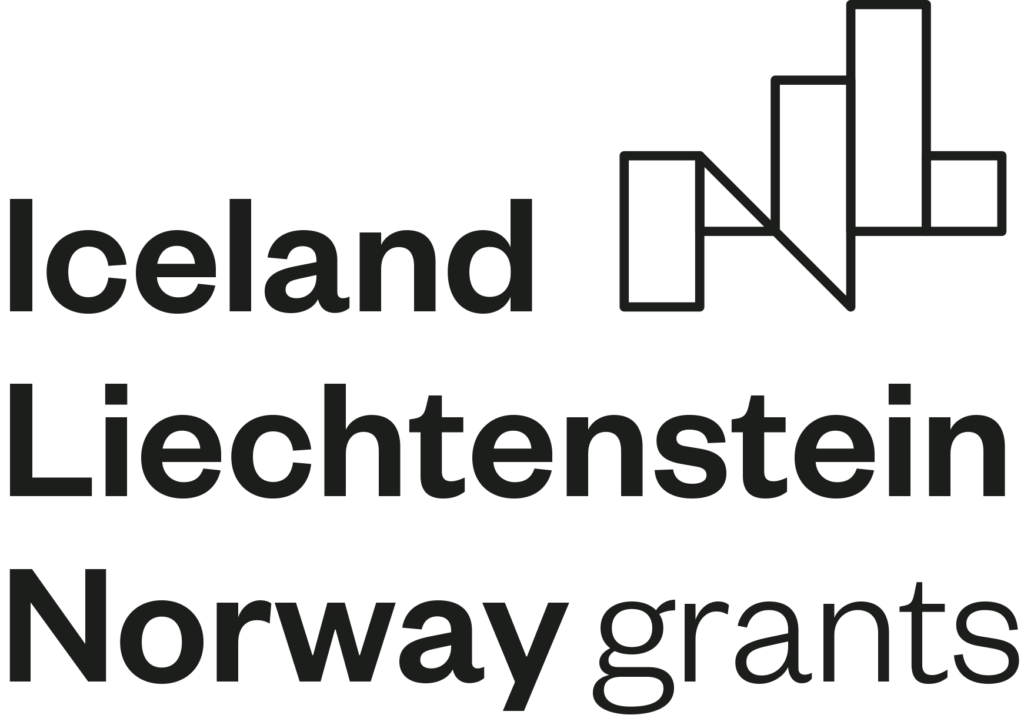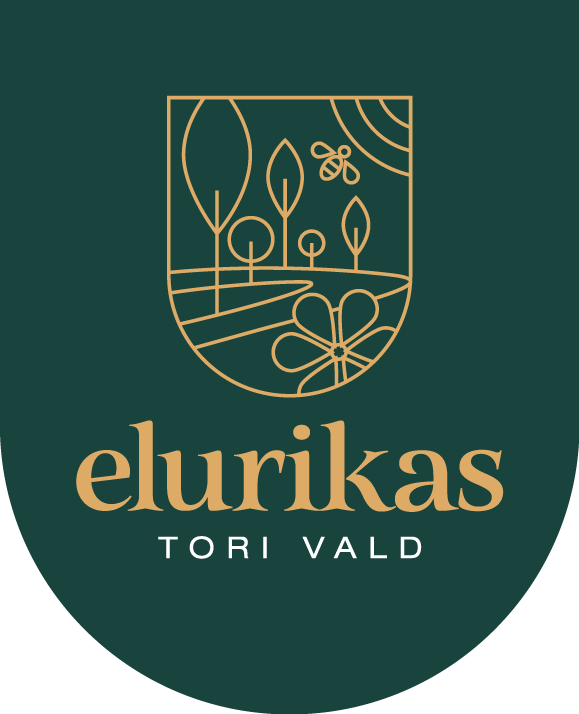Series of training courses for the “Vibrant Tori Municipality” project
With the series of courses within the framework of the “Vibrant Tori Municipality” project, we want to learn together with the community and find solutions for biodiversity that are just right for our municipality. In the spring, if the weather is favourable, we are planning to create pilot flower meadows in Tori, Jõesuu, Sauga and Are together with local communities.
The training courses are by pre-registration and those who attend all four courses will receive a practical gift related to biodiversity. To participate in the trainings, you do not have to be a resident of Tor municipality. The trainings are held in Estonian. The duration of the trainings is approximately two hours.
Additional information: Elurikas Tor parish project manager Triin Sohlu
triin.sohlu@torivald.ee Phone. 5700 0637
See the training schedule (courses are finished)
Everyone’s nature: how to protect the biodiversity we need and conserve nature?
Human activities always have an impact on nature and the living organisms that live in it, but not necessarily a negative one. Some of the measures that can be taken to promote biodiversity in the home garden or in public spaces are simple enough and often make people’s lives easier and broaden their horizons. In this course, we will talk about the meaning of biodiversity, the importance of protecting it and the value it creates for us. We will also give practical tips on how to make your garden more biodiverse.
The training will be conducted by Mart Meriste, a biologist, spider researcher, passionate conservationist and botanist. He is the founder of Nordic Botanical OÜ, which has an important mission to engage in conservation where it has not been done before and to introduce important innovations in wildlife conservation. He has developed dozens of large-scale landscape management plans focused on biodiversity conservation, replanted thousands of protected plants and sown tens of hectares of new grasslands in former farmland, urban parks and people’s backyards. Nordic Botanical OÜ has set up two machines specially developed to collect seeds from natural meadows, and hundreds of native meadow plant species are growing in Vooremaa’s fields.
Sauga Must Maja
March 4 2023, at 10am
Are huvikeskus
March 4 2023, at 14pm
Tori Rahvamaja
March 19 2023, at 10am
Sindi Sotsiaaltöökeskus
March 19 2023, at 14pm
How to plant and maintain a flower meadow at home?
Did you know that a hundred years ago, almost a quarter of Estonia was covered with different types of grassland? Did you know that Estonia’s meadows hold the world record for biodiversity? Today, about 5% of the historical area of meadows remains in Estonia, and few of us are fortunate enough to have these landscapes of exceptional biodiversity as our everyday environment. But this need not be the case. In this training course, we will talk about why are flower meadows needed and how can they be created? We’ll explain the main complexities and common mistakes made when planting flower meadows, and when it’s wise to harvest the seeds needed for a flower meadow. It’s a practical training course, so you can put the knowledge to work in your garden straight away!
The course will be led by Külli Keerus, who holds a Master’s degree in Philosophy. As a researcher at the University of Tartu, she worked on environmental and animal ethics. Despite her nature-oriented choice of topics in philosophy, her heart was still drawn to the garden and the forest, which is why she decided to study horticulture at Räpina Horticultural School. She then went on to study biology at the University of Tartu, where she is currently working on her bachelor’s degree. She now works as the head gardener at Nordic Botanical OÜ and enjoys the bumblebee and butterfly hunt that takes place in its fields in the summer. Her favourite flower is the English angelica (Filipendula vulgaris),which grows on dry calcareous marshy grassland.
Sauga Must Maja
Aprill 1 2023, at 10am
Are huvikeskus
Aprill 1 2023, at 14pm
Tori Rahvamaja
April 9 2023, at 10am
Sindi Sotsiaaltöökeskus
April 9 2023, at 14pm
How to compost and save nature?
This is a great way to become a smart composter, save nature and money! Composting is one of the cheapest ways to restore soil fertility, using your food and garden waste. Composted soil is great for both vegetables and houseplants. It’s one of the easiest ways to keep the environment clean and create much less waste.
In this hands-on course, we’ll talk about how to get started with composting, what can be composted, what can’t, and the main mistakes that are made. We will also look specifically at how to use open and closed composters, and the different types of composting.
The course will be led by Anneli Ohvril, a composting educator and leader of the Compost Lion movement. Anneli has also been a driving force behind the projects „Teeme ära!“, „Teeme ära – maailmakoristus“, „Killerkott tapab“ and „Prügihunt ja Superjänes“.
Tori Rahvamaja
April 22 2023, at 10am
Sindi Sotsiaaltöökeskus
April 22 2023, at 13pm
Sauga Must Maja
May 13 2023, at 10am
Are huvikeskus
May 13 2023, at 13pm
A complex topic made simple: what can I do to influence climate change?
Come and be part of a great opportunity to become aware of how to make better choices to protect our environment. In this course, we will talk simply and clearly about the climate change concerns in Estonia and what we can do together to protect the environment. We will also look at the myths surrounding climate change, and explain what the circular economy and the green economy really mean.
The training will be conducted by Kerli Laur, a lecturer in waste and circular economy, sustainability and environmental care. Kerli’s knowledge has helped a wide range of businesses, educational institutions and communities. Kerli also contributes to the World Cleanup Estonia team and the Green Tiger project.
Tori Rahvamaja
January 21 2023, at 10am
Sindi Sotsiaaltöökeskus
January 21 2023, at 14pm
Sauga Must Maja
January 28 2023, at 14pm
Are huvikeskus
January 28 2023, at 10am
Jointly establishing biodiversity pilot areas in Tori, Jõesuu, Sauga and Are.
In the spring, after the end of the four-part training course, we will establish flower meadows in the centres of Sauga, Are, Tori and Jõesuu together with community members. Their aim is not just to provide a visual attraction, but to introduce local people to the necessity, beauty and possibilities of a naturally biodiverse community. We are trying to reduce the areas in our municipality that have become species-poor as a result of intensive mowing, and to provide an opportunity for biodiversity. We let plants that cannot tolerate low mowing thrive, allowing them to flower and ripen seeds.
By encouraging flowering, we will also help to increase the abundance of pollinators that are important in the natural food chain. We are also leaving nature the opportunity for self-healing. For every flower meadow planted, we will also leave an unmowed patch of lawn so that we can compare their development and evolution.
The practical part of the planting will be carried out by Kati Niibo a landscape architect with 20 years’ experience at Hüüp. She has designed a wide range of landscapes from domestic gardens, to estate parks, public urban gardens and eco-gardens. In her work, she considers it important to ensure that the surrounding natural environment supports the new design solution, as this is the only way to create projects that will last for years. He also contributes to creating landscapes that appear as natural as possible and where the designer’s hand is barely visible.
The project was born in cooperation with:



The project “Creation of pilot areas for nature-based solutions to increase biodiversity in the municipality of Tori” (in short “Biodiverse Municipality of Tori”) is supported by the Environmental Investment Centre through the Climate Change Adaptation Measure. The support is funded by the European Economic Area.
